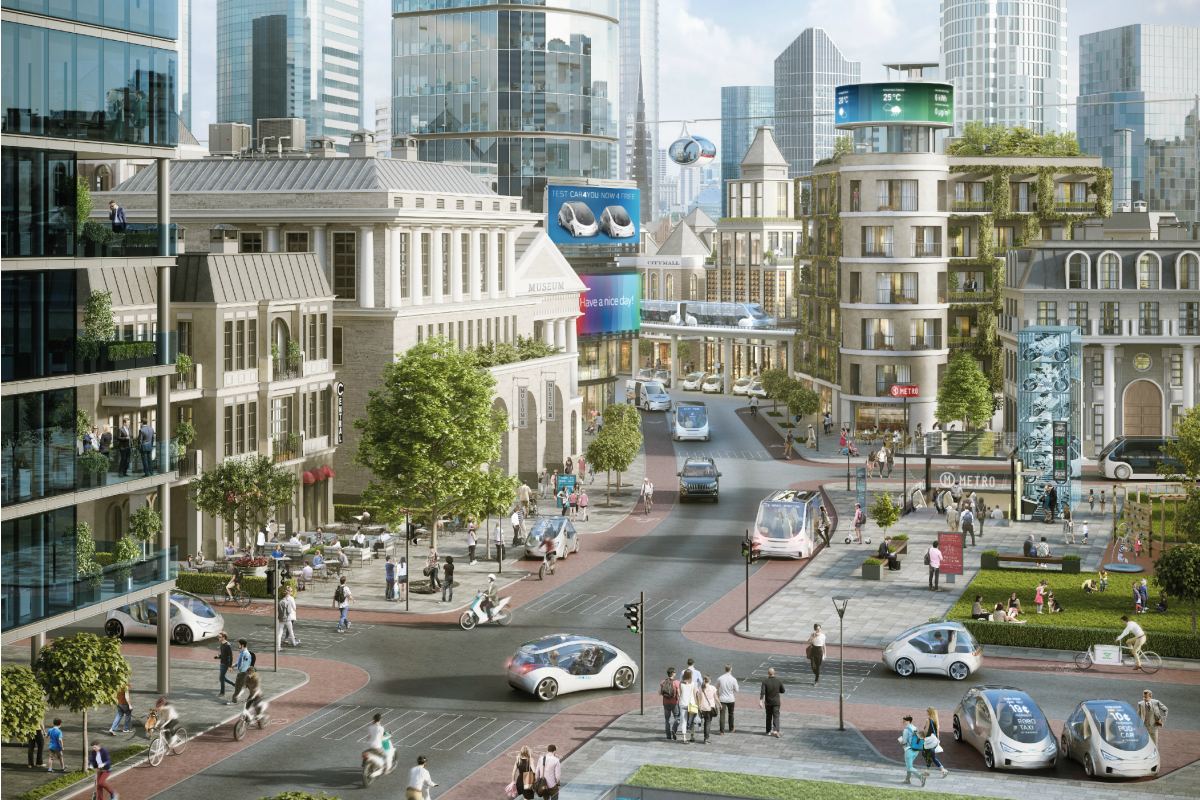Bosch's smart vision for the future
News06 Jul 2017
Megacities are full to bursting point and Bosch warns of the threat of "total gridlock" in the future

Bosch believes no megacity will work without smart traffic and a new model for mobility
Bosch used its Mobility Experience 2017 event in Boxberg, Germany, to demonstrate its future focus on smart cities.
It has committed to becoming a provider of mobility services for conurbations, warning that many megacities across the globe are full “to bursting point” and in many places, there is a threat of total gridlock.
“With roughly two-thirds of the global population living in conurbations in 2050, and the growth in urbanisation this will involve, there will also be a growing number of problems,” it stated.
Dr Rolf Bulander, member of the board of management of Robert Bosch GmbH and chairman of the Mobility Solutions business sector, said Bosch can help improve quality of life in megacities and conurbations. “The main means to this end is emissions-free, stress-free, and accident-free mobility,” he added.
Bosch also pointed out that in business terms as well, smart cities are a growth area for the supplier of technology and services. In the period up to 2020 alone, the smart city market will grow 19 per cent each year, reaching a volume of 700 billion euros. In its cross-selling projects, Bosch has already doubled its sales in this sector over the past two years.
When it comes to roads, shortage of parking, inefficient final-mile delivery, and roads “chockablock with private cars” were all highlighted as common mobility problems in many large cities.
“For city-dwellers, it’s the same old story – congested roads. There’s no sign of progress. It’s high time the opportunities offered by connectivity were used to make urban traffic smart,” said Bulander, adding that, in the future, no megacity will work without smart traffic, and a new model for mobility: “We are moving away from the car-centric city to an idea of mobility that is both smart and multimodal.
“Multimodal mobility services that users can reserve with just a few mouse-clicks will play a major role in reducing congestion.
“Our efforts to help create an urban environment that is free of emissions, stress, and accidents are tied to three technological developments: automation, electrification, and connectivity.”
“Connecting cars, two-wheelers, other road users, and infrastructure may help reduce accidents, and thus save lives. Especially in emerging markets, road users such as riders of two-wheelers are at risk,” said Bulander.
Bosch’s technologies include ABS for e-bikes, a digital shield for motorcyclists, and, in emergencies, the eCall developed specifically for motorbikes that aims to save lives.
Bosch claims that its e-bike business makes it the market leader for drive units for the world’s most successful electric vehicle. More than 200 million e-scooters are on the road in China, and Bosch powertrains play a role here as well. For light two-, three- and four-wheel electric vehicles, Bosch has developed a compact powertrain system that can power two-wheelers such as the E-Schwalbe and small four-wheel vehicles such as the e.Go.
Apart from driving forward the development of electromobility in all vehicle classes and segments, the company is working to further improve the combustion engine. Bosch spends roughly half its R&D budget on environmental protection and resource conservation.
Bosch is also pursuing 14 beacon projects relating to smart cities and include urban projects in Singapore, San Francisco, Berlin, and Hamburg. Seven projects include urban mobility solutions.
Apart from connected parking and fleet management, these solutions also involve electromobility and multimodal transport. Bosch’s latest collaboration agreement in the area is with the Chinese city of Tianjin. The aim of this alliance is to make this port into a smart city.
This year, the Bosch Group’s mobility business is expected to grow by some 7 per cent. Bulander commented: “We are growing faster than the market and, as an automotive systems supplier, will remain a strong and above all innovative partner of the automotive industry. Moreover, we are evolving into a provider of services for every road user.”
If you like this, you might be interested in reading the following:
Road mapping with radar
It is expected that by 2020 at the latest, the first vehicles will provide data for the radar road signature in Europe and the US
Bosch establishes new powertrain division
Powertrain Solutions division aims to offer a wide-ranging portfolio of technologies that will make getting from A to B more efficient, economical, and eco-friendly
Connecting for innovation
The Chicago Connectory in the city’s historic Merchandise Market is home to a new IoT co-creation space


No comments :
Post a Comment
Note: only a member of this blog may post a comment.